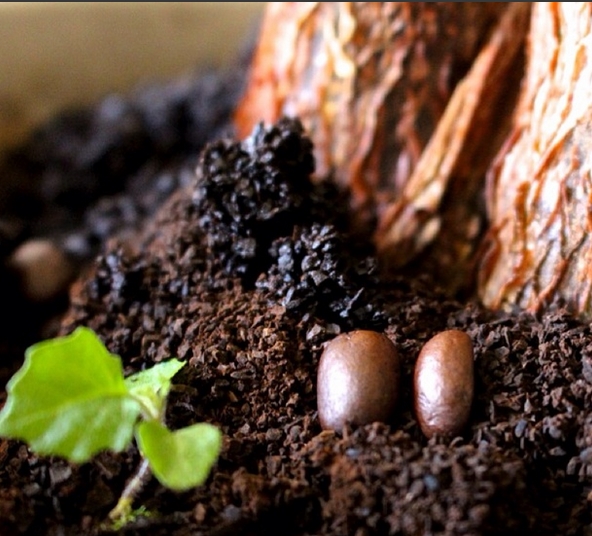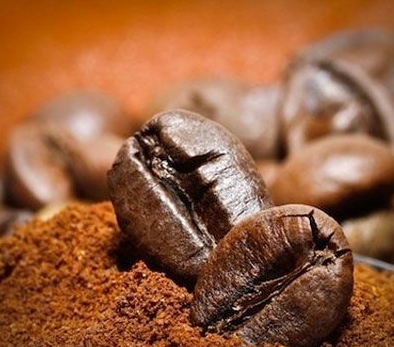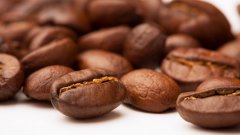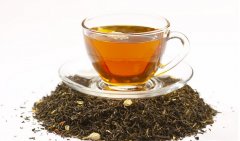Coffee may be 500 times more antioxidant than vitamin c
The coffee industry plays a major role in the global economy, and its impact on the environment is also crucial. More than 2 billion tons of coffee by-products are produced worldwide each year; when coffee beans are roasted and dried, coffee husks (that is, the skins of coffee beans) are usually removed during processing, while coffee grounds are directly discarded.

Conventional wisdom holds that these by-products, coffee grounds and coffee husks, do not have much practical value and applications, and coffee grounds can sometimes be homemade as exfoliating glycolic acid (Exfoliants) or as a cleaning product.
Recently, in a research paper published in the international journal LWT-Food Science and Technology, scientists from the University of Granada began to determine which coffee by-products can be recycled as nutrients, thus helping to reduce the waste of coffee by-products.
In the article, the researchers clarify that coffee grounds and coffee husks have strong antioxidant and antibacterial properties because they are rich in fiber and phenols, and indeed the findings also reveal that coffee grounds are more than 500 times more potent than vitamin C. therefore, using coffee grounds as a functional food will bring huge health benefits.
Researcher Professor Rufian Henares said that coffee grounds and other by-products also include high levels of protein melanin, which is often produced during roasting and makes coffee brown. The biochemical properties of these protein melanins may have a series of practical applications, such as preventing the growth of harmful pathogens in food. However, if we can take advantage of the beneficial effects of coffee by-products, then we need to remove this protein melanin first because it interferes with the beneficial effects of by-products.
Finally, the researchers concluded that the treatment of coffee by-products may lead to potential recycling as a new food ingredient, which may significantly reduce the environmental effects of discarded coffee by-products. Researchers from economics and finance have called for a plan to speed up the assessment of the potential value of coffee by-products so that they can be better utilized.

Related documents
Antioxidation refers to the abbreviation of antioxidant free radicals, English Anti-Oxidant. The human body continues to produce free radicals in the human body because of continuous contact with the outside world, including respiration (oxidation), external pollution, radiation and other factors. Scientific studies have shown that cancer, aging or other diseases are mostly associated with the production of excessive free radicals. The study of antioxidation can effectively overcome its harm, so antioxidation is listed as one of the main research and development directions by health products and cosmetics enterprises, and it is also one of the most important functional demands in the market.
Antioxidation is any substance that can effectively inhibit the oxidation of free radicals at a low concentration, and its mechanism can be directly acting on free radicals or indirectly consuming substances that are easy to produce free radicals to prevent further reactions. While the human body inevitably produces free radicals, it also naturally produces antioxidants that resist free radicals to counteract the oxidative attack of free radicals on human cells. Studies have proved that the antioxidant system of the human body is a perfect and complex system comparable to the immune system. The stronger the antioxidant capacity of the body is, the healthier the body is and the longer the life is.
The body's antioxidants are not only self-synthesized, but also supplied by food. Enzymes and non-enzymatic antioxidants play an important role in protecting peroxidation damage caused by exercise. The supplement of plant active selenium to enhance antioxidation is beneficial to the exercise body to reduce the production of free radicals or accelerate their scavenging, so as to combat the side effects of free radicals, so it is beneficial to the health of ordinary people and athletes, and may delay the occurrence of exercise-induced fatigue and speed up physical recovery. Older people who are physically active are better than younger people who take antioxidants.
Important Notice :
前街咖啡 FrontStreet Coffee has moved to new addredd:
FrontStreet Coffee Address: 315,Donghua East Road,GuangZhou
Tel:020 38364473
- Prev

Will coffee beans wither when stored for a long time? How to preserve coffee beans correctly
Deterioration refers to the change in which the properties of polymers are reduced and cannot be recovered. Due to the action of heat, light, ultraviolet light, oxygen, ozone and various chemicals, polymer materials will change their physical or chemical properties, such as discoloration, cracking, intensity reduction and so on. These external conditions can cause the breakage or cross-linking of the polymer main chain, resulting in structural changes and reduced properties. Roasted coffee
- Next

The competition between new tea and coffee, do you prefer tea or coffee?
When we get up early in the morning, we may all have a habit of having a cup of tea or coffee to wake ourselves up and face this new day, so the question is, should we drink tea and coffee? So which is better for our health, tea or coffee? Next, the editor of Sanjiu Health Hall will take a look at it with you. How about tea? According to a study, tea
Related
- Detailed explanation of Jadeite planting Land in Panamanian Jadeite Manor introduction to the grading system of Jadeite competitive bidding, Red bid, Green bid and Rose Summer
- Story of Coffee planting in Brenka region of Costa Rica Stonehenge Manor anaerobic heavy honey treatment of flavor mouth
- What's on the barrel of Blue Mountain Coffee beans?
- Can American coffee also pull flowers? How to use hot American style to pull out a good-looking pattern?
- Can you make a cold extract with coffee beans? What is the right proportion for cold-extracted coffee formula?
- Indonesian PWN Gold Mandrine Coffee Origin Features Flavor How to Chong? Mandolin coffee is American.
- A brief introduction to the flavor characteristics of Brazilian yellow bourbon coffee beans
- What is the effect of different water quality on the flavor of cold-extracted coffee? What kind of water is best for brewing coffee?
- Why do you think of Rose Summer whenever you mention Panamanian coffee?
- Introduction to the characteristics of authentic blue mountain coffee bean producing areas? What is the CIB Coffee Authority in Jamaica?

